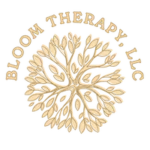Sibling relationships can be incredibly meaningful, but not all are built on mutual respect and care. If you’re feeling drained, anxious, or triggered after every interaction with your sibling, you may be seeing early toxic sibling signs. Family conflict isn’t always loud or obvious; sometimes it shows up in quiet, persistent ways that chip away at your peace. This post explores how to recognize when a sibling relationship is doing more harm than good, and what healing can look like.
Toxic sibling relationships are often misunderstood or minimized. But emotional abuse between siblings is real – and it can have lasting impacts on your mental health. Whether you’re dealing with gaslighting, manipulation, or boundary violations, it’s important to understand the signs and know you’re not alone.
1. You Walk on Eggshells Around Your Sibling
Do you filter your words, brace for outbursts, or avoid sharing good news because you don’t know how they’ll react? That tight-chested feeling of dread around a sibling isn’t a normal part of healthy connection. It’s a survival response to emotional unpredictability – and over time, it can erode your sense of safety and self-worth.
2. Your Toxic Sibling Dismisses or Belittles Your Experiences
If you open up about your feelings and you’re met with sarcasm, blame, or outright denial, that’s not just “sibling banter.” Repeated emotional invalidation – especially from someone who knows your history – is deeply damaging. It can cause you to question your memories, your emotions, and even your ability to trust your own perspective.
3. Your Boundaries Are Ignored by Your Sibling
Toxic siblings often react poorly when you say no. They may push, guilt-trip, or gaslight you into changing your mind. Over time, this pattern makes it harder to set limits elsewhere in your life. Healthy relationships respect limits – without punishment or emotional backlash. If your sibling crosses lines and then blames you for reacting, that’s a red flag.
4. Your Sibling Stirs Up Conflict, Especially at Family Events
Do holidays or milestones always feel chaotic when they’re involved? If drama seems to follow them – and you’re always the one expected to smooth things over – you may be stuck in a dysfunctional role, like the peacekeeper or scapegoat. This cycle can leave you emotionally exhausted and resentful.
5. You Consistently Feel Worse After Interacting with Your Sibling
If every call, text, or visit leaves you anxious, angry, or depleted, take that seriously. Our bodies often know what our minds are slow to name. Feeling emotionally dysregulated or drained after interacting with a sibling is not a small thing – it’s a signal that something isn’t right.
What You Can Do About a Toxic Sibling Relationship
Recognizing a toxic sibling relationship can be painful – but it also opens the door to new choices. You don’t have to keep reliving old patterns. Here are some steps you can take to begin protecting your energy and regaining your emotional footing.
- Start tracking your emotional responses to interactions. Keep a journal or note app to document how you feel before and after seeing or talking to your sibling. This helps you identify patterns and get clarity.
- Re-establish boundaries and communicate them clearly. Boundaries might include limits around topics of conversation, time spent together, or the frequency of contact.
- Limit contact or shift to low-contact if needed. Reducing exposure is sometimes necessary for your mental health – especially when patterns of harm don’t change.
- Talk to a therapist who understands family conflict and trauma-informed healing. A therapist can help you unpack the emotional toll, explore your options, and rebuild your sense of agency.
How Therapy Can Help You Heal From a Toxic Sibling
Healing from a toxic sibling relationship takes more than time – it takes safety, clarity, and support. At Bloom Therapy, we work with clients who are carrying the invisible weight of sibling pain, especially when it stems from narcissistic dynamics, emotional abuse, or years of unresolved conflict.
Through EMDR, Art Therapy, and talk therapy, we help you process the past without getting stuck in it. Our trauma-informed approach gives you space to:
- Understand the impact of toxic sibling dynamics on your nervous system and self-worth
- Rebuild boundaries that reflect your values – not your guilt
- Reclaim your identity beyond the roles you were assigned in your family
You don’t have to stay stuck in survival mode. You’re allowed to heal, even if the relationship never changes.
Want to learn more about how therapy can support you in healing from toxic sibling dynamics? Visit our Family Conflict Therapy page to explore how we help clients move forward with compassion and clarity.
Related Posts You Might Find Helpful
– Toxic Sibling in Adulthood: What You Can Do About It
– Healing from a Toxic Sibling Relationship Without Reconciliation
– Boundaries with a Narcissistic Sibling: How to Protect Your Peace
– Why Sibling Conflict Hurts So Much
Each of these blogposts explores a different piece of the healing journey – from estrangement to emotional recovery and boundary-setting with difficult siblings.
